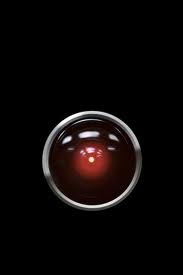 A few weeks ago, Brad Rutter and Ken Jennings got whupped up on by IBM’s Watson in three consecutive episodes of Jeopardy! Billed as the ultimate intellectual showdown between man and machine, Watson wowed audiences with its ability to understand human speech, parse crappy puns, avoid calling Brad and Ken things like ‘organ sack’ or ’tissue mound,’ and keep mum on the subject of world domination.
A few weeks ago, Brad Rutter and Ken Jennings got whupped up on by IBM’s Watson in three consecutive episodes of Jeopardy! Billed as the ultimate intellectual showdown between man and machine, Watson wowed audiences with its ability to understand human speech, parse crappy puns, avoid calling Brad and Ken things like ‘organ sack’ or ’tissue mound,’ and keep mum on the subject of world domination.
Unsurprisingly, responses to the competition focused on just how artificial this newest artificial intelligence really is; does Watson herald the potential for sentient, or near-sentient, machines, or is the software just the latest, sleekest imitation of real cognition. Stanley Fish weighed in with a resounding NO, citing AI’s inherent reliance on rules and its inability to bend them, and, after catching some flak from commenters for a seemingly outdated understanding of the technology, invited professors Hubert Dreyfus and Sean Dorrance Kelly to further rebut Watson’s claim to intelligence (and, thankfully, intellectual ascendency). Both pieces are worth a read – although neither note my favorite irony of the situation: that trivia is also a type of artificial intelligence.
In related notes:
1) Any reader interested in a discussion of thinking machines (particularly thinking machines and literature) should check out Richard Powers’ wonderful 1995 novel Galatea 2.2, in which a fictionalized version of the author trains a computer program to thoughtfully discuss books.
2) Any reader curious about Stanley Fish’s latest book How to Write a Sentence: And How to Read One should kindly navigate back to Full-Stop’s homepage where it is reviewed by our web editor Eric Jett (as of 3.4.2011).
3) Any reader still worried about robot overlords should maybe not follow this terrifying link to BoingBoing’s terrifying image of a mechanized Collie.
This post may contain affiliate links.








